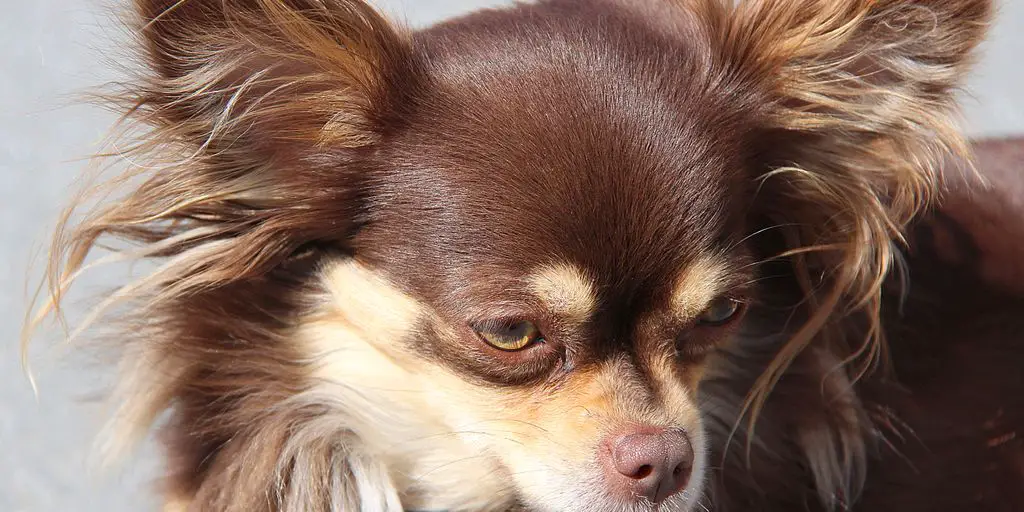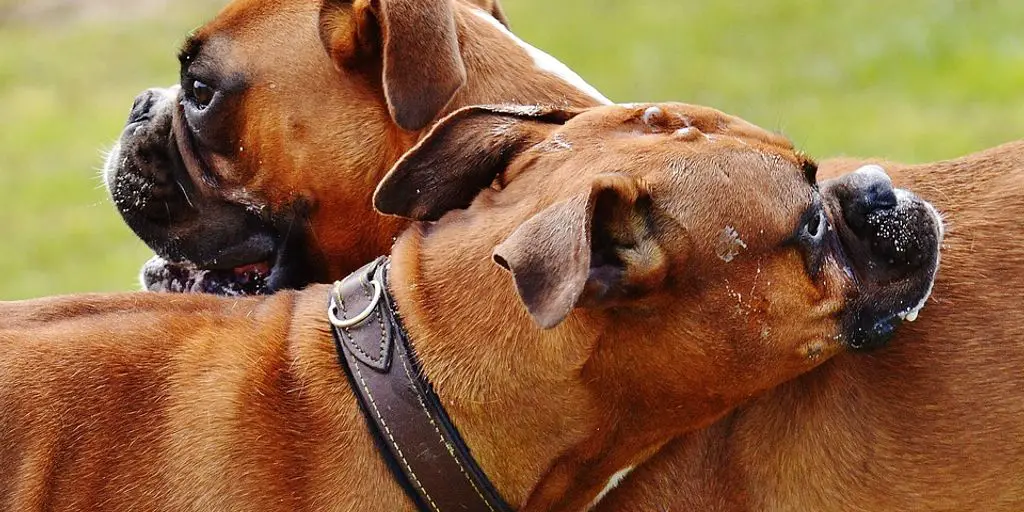Yorkshire Terriers, also known as Yorkies, are one of the most popular dog breeds in the world. These small and adorable dogs have captured the hearts of many with their playful and affectionate nature. As a terrier breed, they are known for their high energy and intelligence, making them great companions for active owners.
Suppose you are considering getting a Yorkshire Terrier or already have one. In that case, having a comprehensive and authoritative guide is important to help you care for your furry friend. This guide will provide relevant information on everything you need about Yorkshire Terriers, from their history and characteristics to their health and grooming needs. It will also cover training tips and techniques to help you raise a well-behaved and obedient Yorkie.
Definition of Yorkshire Terrier
The Yorkshire Terrier, also known as the Yorkie, is a small breed of dog that originated in England during the 19th century. It is a toy breed, weighing no more than 7 pounds, and is known for its long, silky coat that comes in various colors, including blue and tan, black and gold, and black and tan.
The breed was developed in the counties of Yorkshire and Lancashire by Scottish weavers who brought their terrier breeds with them when they migrated to England. The exact lineage of the breed is unknown but is believed to include several terrier breeds, such as the Skye and Dandie Dinmont, as well as the Maltese.
Yorkshire Terriers are known for their energetic and playful personalities and loyalty and affection towards their owners. They are intelligent dogs that are easy to train, making them a popular choice for first-time dog owners.
The American Kennel Club (AKC) recognizes the Yorkshire Terrier as a member of the Toy Group. According to the AKC breed standard, the ideal Yorkshire Terrier should have a compact and well-proportioned body, a level topline, and a small head with a flat skull. The breed should also have a confident and self-assured temperament.
In summary, the Yorkshire Terrier is a small, toy breed of dog with a long, silky coat that comes in various colors. It is an intelligent and playful breed that is easy to train and makes a great companion for both experienced and first-time dog owners.
History of the Yorkshire Terrier
The Yorkshire Terrier is a small dog breed that originated in the mid-19th century in England. In this section, we will discuss the history of the Yorkshire Terrier, including its breed origin, ancestors, and evolution over time.
Yorkshire Terrier Dog Breed Origin
The Yorkshire Terrier breed originated in the northern counties of England, specifically Yorkshire and Lancashire. During the mid-19th century, the breed was developed by Scottish weavers who migrated to England to work in the textile mills and coal mines. These weavers brought several terrier breeds, including the Clydesdale Terrier and the Paisley Terrier, which were then crossed to create the Yorkshire Terrier.
A Brief Discussion of the Yorkshire Terrier’s Ancestors
The lineage of the Yorkshire Terrier breed is unknown, but it is believed to include several terrier breeds, including the Skye and Dandie Dinmont. The Maltese may also be included in the breed’s ancestry, as it is thought that Maltese dogs were crossed with the original terrier breeds to create the Yorkshire Terrier.
Evolution of the Yorkshire Terrier over Time
The Yorkshire Terrier was first shown in dog shows in the mid-19th century, and it quickly gained popularity as a companion dog. The breed was brought to the United States in the late 1800s and was recognized by the American Kennel Club in 1885.
Over time, the Yorkshire Terrier has evolved into a famous lap dog and companion animal. The breed has also been used for ratting, other small game hunting, and in the show ring.
In summary, the Yorkshire Terrier is a small dog breed that originated in England in the mid-19th century. The breed was developed by Scottish weavers who migrated to England and brought with them several terrier breeds. Today, the Yorkshire Terrier is a popular companion animal and lap dog, and it has a rich history in dog shows and small game hunting.
The Appearance of the Yorkshire Terrier
Yorkshire Terriers are small and compact toy breeds of terrier type. They have a luxurious coat of steel blue and a rich golden tan that is silky and floor-length. Their coats are not fur but long hair, which makes them hypoallergenic and comfortable lapdogs. Here’s a guide that goes over the body type, head type, coat type, physical characteristics, height, weight, and color of the Yorkshire Terrier.
Body Type
Yorkshire Terriers have a compact body with a level back and a well-rounded chest. They have a small and short tail that is usually docked to a medium length. Their legs are straight and well-boned, and their feet are round and compact.
Head Type
Yorkshire Terriers have a small and flat skull with a medium-length muzzle. They have a black nose and dark, medium-sized eyes that are well apart. Their ears are small, V-shaped, and erect.
Coat Type
Yorkshire Terriers have a luxuriously long, straight, and silky coat. It is parted down the middle of the back and hangs on either side of the body. They have no undercoat, which makes them hypoallergenic and low-shedding.
Physical Characteristics
Yorkshire Terriers are tenacious and lively dogs that are always on the move. Despite their small size, they have a confident and bold personality and are known for their prominent characters. They are comfortable lapdogs and make great companions.
Height and Weight
Yorkshire Terriers are small dogs that weigh no more than 7 pounds and stand no taller than 9 inches at the shoulder.
Color
The Yorkshire Terrier’s coat is typically tan on the head with a dark steel-grey body, but they can come in various colors, including black, blue, and gold.
In conclusion, the Yorkshire Terrier is a small and compact toy breed of terrier type with a luxurious coat of steel blue and a rich golden tan. They are hypoallergenic, comfortable lapdogs that have a confident and bold personality. They make great companions and are perfect for those who want a small dog with a big personality.
Yorkshire Terrier Traits
Yorkshire Terriers, or Yorkies, are small toy dogs known for their aggressive and energetic personalities. They are brilliant and require much attention and training to ensure they are well-behaved and safe around other people and pets. Here are some of the critical traits of Yorkshire Terriers:
Types of Yorkshire Terriers
There are two main types of Yorkshire Terriers: standard and miniature. Standard Yorkies typically weigh between 4 and 7 pounds, while miniature Yorkies weigh less than 4 pounds. Both types have a long, silky coat that requires regular grooming.
Strength – How strong are the Yorkshire Terrier
Despite their small size, Yorkshire Terriers are surprisingly strong and agile. They can jump high and run fast, making them great companions for people who enjoy outdoor activities.
Yorkshire Terrier Life Stages
Yorkshire Terriers undergo several life stages, including puppyhood, adolescence, and adulthood. During each stage, they require different levels of care and attention. Providing them with plenty of toys and dental care ensures their teeth stay healthy.
Yorkshire Terriers are also known for their excessive barking, which can be problematic if they are not adequately trained. It is essential to teach them basic commands and tricks using positive reinforcement rather than force.
Overall, Yorkshire Terriers are an excellent choice for people who want a toy breed that is both intelligent and playful. They can make excellent companions for people of all ages with proper training and care.
Temperament
Yorkshire Terriers are known for their prominent personalities despite their small size. They are confident, courageous, and affectionate companions who make great lap dogs. However, like all dog breeds, they have unique temperament traits that potential pet owners should know.
Loyalty and Affection of the Yorkshire Terrier
Yorkshire Terriers are loyal and affectionate dogs that bond closely with their owners. They thrive on human companionship and love to always be near their owners. They are known for their eagerness to please and their desire to be part of the family.
Intelligence and Trainability of the Yorkshire Terrier
Yorkshire Terriers are intelligent dogs that are quick learners. They respond well to positive reinforcement training methods and enjoy learning new tricks and commands. However, like all small dogs, they can sometimes be stubborn, so consistent training is essential.
Importance of Socialization for Good Manners and Behavior
Socialization is crucial for Yorkshire Terriers to develop good manners and behavior. They need to be exposed to different people, animals, and environments from a young age to prevent behavioral issues such as aggression and separation anxiety. Early socialization can help them become well-adjusted and friendly dogs.
Compatibility of the Yorkshire Terrier with Children and Other Pets
Yorkshire Terriers can be great companions for children and pets but require supervision and training. They are small dogs and can be easily injured by rough play, so children must be taught to handle them gently. They also have a strong prey drive, so they may not be compatible with smaller pets such as rabbits or guinea pigs.
In summary, Yorkshire Terriers are loyal, affectionate, trainable, intelligent dogs that make great companions. However, they require socialization and consistent training to prevent behavioral issues. They can be compatible with children and pets, but supervision and training are necessary.
Training and Exercise
High Trainability of the Yorkshire Terrier
Yorkshire Terriers are known for their high intelligence and trainability. They are quick learners and respond well to positive reinforcement training methods. It is essential to start training your Yorkshire Terrier as early as possible to establish good behavior and obedience.
Positive Reinforcement Training Methods for Yorkshire Terriers
Positive reinforcement training methods are highly effective for training Yorkshire Terriers. These methods involve rewarding good behavior with treats, praise, and affection. Punishing bad behavior is not recommended as it can lead to fear and aggression. Consistency and patience are key when training your Yorkshire Terrier.
Exercise Requirements of the Yorkshire Terrier
Yorkshire Terriers are small dogs with moderate exercise requirements. They require daily exercise to maintain their physical and mental health. A daily walk or playtime in the yard is recommended. However, avoiding over-exercising your Yorkshire Terrier is essential as they are prone to joint problems.
Various Activities and Games the Yorkshire Terrier Enjoy
Yorkshire Terriers enjoy a variety of activities and games. They love playing fetch, tug-of-war, and chasing toys. Agility training is also a great way to provide exercise and mental stimulation for your Yorkshire Terrier. Interactive toys such as puzzle feeders and treat-dispensing toys are also great for keeping your Yorkshire Terrier entertained.
Regarding training and exercise, it is essential to establish a feeding schedule and an appropriate amount of food for your Yorkshire Terrier. Wet food can be given as a treat, but monitoring their overall calorie intake is essential. Obedience training and dog training classes can also benefit socialization and advanced training.
In conclusion, training and exercise are essential to owning a Yorkshire Terrier. Positive reinforcement training and daily routine can help maintain good behavior and physical health. Various activities and toys can also keep your Yorkshire Terrier entertained and mentally stimulated.
Grooming
Yorkshire Terriers are known for their long, silky coats, which require regular grooming to keep them healthy and looking their best. This section will discuss the grooming requirements for Yorkshire Terriers and standard grooming practices.
Grooming Requirements for Yorkshire Terriers
Yorkshire Terriers have a long, silky coat that requires regular brushing to prevent matting and tangling. According to the American Kennel Club, brushing your Yorkie’s coat at least once daily is recommended to keep it in good condition. It would be best to bathe your Yorkie every three to four weeks to keep their coat clean and healthy.
In addition to brushing and bathing, Yorkshire Terriers have other grooming requirements. For example, their nails should be trimmed regularly to prevent them from becoming too long and causing discomfort. It would be best to clean your Yorkie’s ears regularly to prevent infections.
Standard Grooming Practices for Yorkshire Terriers
When it comes to grooming your Yorkshire Terrier, there are some standard practices that you should follow. Here are a few tips to keep in mind:
- Use a pin brush without a rubber back to prevent tearing the coat.
- Divide the skin into sections and brush from the root to the tip with the lie of the hair.
- Mix five parts water and 1 part dog coat conditioner in a spritzer bottle to help detangle the coat.
- Wet the dog with warm water and apply shampoo from the neck and back.
- After lathering and scrubbing, rinse your dog thoroughly with warm water.
- Rub vigorously with a towel to help dry the coat.
It is also important to note that some Yorkshire Terriers may require professional grooming to maintain their coat. If you are unsure how to groom your Yorkie, consult a professional groomer.
In addition to grooming, there are other aspects of caring for a Yorkshire Terrier that you should keep in mind. For example, purchasing your Yorkie from a reputable breeder is essential to ensure they are healthy and well-socialized. You should also provide your Yorkie regular dental cleanings to prevent periodontal disease. Finally, using a harness rather than a collar to prevent injury to your Yorkie’s delicate neck and a muzzle if your Yorkie is prone to biting or aggressive behavior is essential.
In conclusion, grooming is essential to caring for a Yorkshire Terrier. Following standard grooming practices and providing regular care can help keep your Yorkie healthy and looking their best.
Health
Yorkshire Terriers are generally healthy dogs, but like all breeds, they are prone to specific health problems. As a responsible dog owner, it is essential to be aware of these issues and take steps to prevent them.
Common Health Issues That Affect the Yorkshire Terrier
Preventative Measures for the Health of the Yorkshire Terrier
- Regular Vet Check-Ups: It is essential to take your Yorkie to the vet for regular check-ups to catch any health issues early.
- Proper Nutrition: Feeding your Yorkie a balanced and nutritious diet is essential for their health.
- Regular Exercise: Yorkies need regular exercise to maintain a healthy weight and prevent health problems.
- Dental Care: Regular brushing and dental cleanings can prevent dental disease.
- Stress Reduction: Yorkies can be prone to stress, so providing them with a calm and stress-free environment is essential.
By following these preventative measures and being aware of the common health issues affecting Yorkshire Terriers, you can help ensure your furry friend stays healthy and happy. Prevention is critical, and caring for your Yorkie’s health is essential to being a responsible dog owner.
Food Requirements of Yorkshire Terrier Dog Breed
Nutritional Requirements of the Yorkshire Terrier
Yorkshire Terriers are small dogs with high energy levels. As such, they require a diet rich in protein and fat to maintain their energy levels. According to veterinarians, a Yorkshire Terrier’s diet should consist of 40 calories per pound of body weight. Adult Yorkshire Terriers should be fed 0.5 to 0.625 cups of food daily, 200 to 250 kcal per day, according to their activity level. Feed young puppies 0.25 to 0.5 cups of food that has 100 to 200 kcal per day.
Protein is an essential nutrient for Yorkshire Terriers, as it helps maintain their lean muscle mass. The protein in their diet should come from high-quality animal-based sources such as beef, chicken, turkey, lamb, duck, eggs, and fish. Additionally, they require healthy fats such as omega-3 and omega-6 fatty acids, which are critical for maintaining healthy skin and coat.
Yorkshire Terriers also require a balanced diet of vitamins and minerals to support their overall health. They need calcium, phosphorus, and vitamin D to maintain strong bones and teeth. They also need vitamins A, C, E, and K to support their immune system and maintain healthy eyes, skin, and coat.
Healthy Food Options for Yorkshire Terriers
When selecting food for your Yorkshire Terrier, choosing high-quality, nutrient-dense options is essential. Here are some healthy food options for Yorkshire Terriers:
- Blue Buffalo Wilderness Small Breed Grain-Free: This high-quality dog food is often recommended as one of the best dog foods available today for Yorkshire Terriers. It contains 36% protein, 16% fat, and 5% fiber, with 425 kcal per cup.
- Royal Canin Yorkshire Terrier Adult Dry Dog Food: This dog food is specially formulated for Yorkshire Terriers and contains antioxidants, vitamins, and minerals to support their overall health. It contains 28% protein, 16% fat, and 3% fiber, with 382 kcal per cup.
- Merrick Grain-Free Small Breed Recipe: This dog food contains high-quality protein from deboned chicken and sweet potatoes, which are easy to digest. It contains 28% protein, 15% fat, and 4% fiber, with 390 kcal per cup.
In addition to commercial dog food, you can also feed your Yorkshire Terrier fresh, whole foods. Some healthy options include cooked chicken, turkey, beef, fresh fruits, and vegetables such as apples, carrots, and green beans. However, you must consult your veterinarian before significantly changing your dog’s diet to ensure they get all the necessary nutrients.


